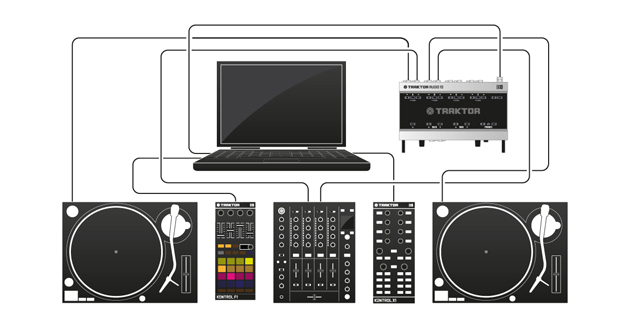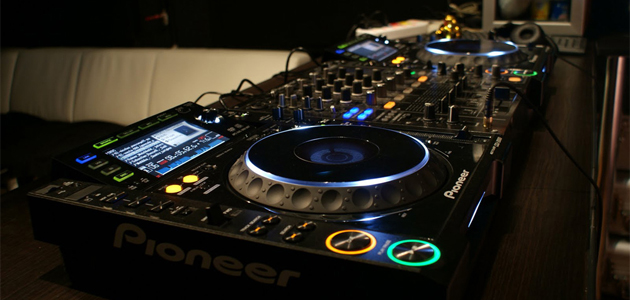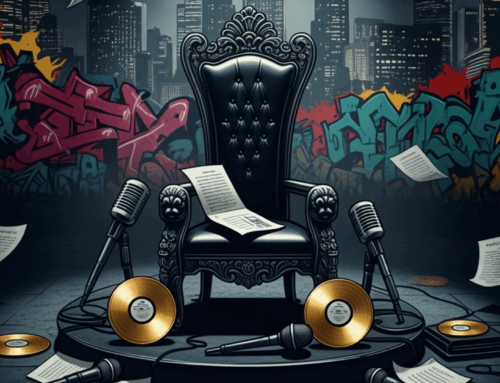It’s a mantra, it’s a meme: Real DJs play vinyl. Or, do they? Vinyl has classic technique, a warm tone, and nostalgia associated with it. Digital files, in recent memory, are associated with pressing the space bar and poorer-quality sound. Yet, established professionals – Paul Van Dyk and Sasha are frequently cited – have made the shift from turntables to laptops. Who’s right?
The Feel and Sound of Vinyl
Although CDJ-2000s, in recent years, have replaced turntables at clubs, newer is not always better. DJs making the case for vinyl identify the sound and feel, first and foremost. In the present, vinyl, as a release format, is making a comeback, and when it comes to sound with a club system, it has the upper hand. CDs are subpar, and digital files’ quality varies widely with type.

But, beyond the technical scope, CDs and digital files are considered sterile. When Crossfadr interviewed Joe Nice last month, the dubstep DJ made the case for digital files’ lack of expressive measures. Instead, vinyl, or analog, he told us: “ Then, for a second tactile argument, there’s the record store. iTunes, Beatport, and similar websites have eliminated its social and exploratory aspects, as well as the experimentation that comes from fitting a new, unfamiliar track into your setlist. Digital files’ preview features and point-and-click shopping behind a computer have made this experience extinct. Digital’s More Practical As many electronic artists, from DJs to synthesizer players know, transporting equipment isn’t easy. Digital files significantly reduce the bulkiness and clutter associated with accumulating a record collection and getting your stuff to a gig. Making a case for digital DJ Phil Morse argues that all tracks are in one single device; added to this, Morse mentioned in 2010, digital files coupled with DJ software makes searching for a track during a set take seconds – particularly helpful when your library consists of hundreds of files. On the same note, Morse, in the same piece, describes his experience, as a DJ in the 1990s, receiving exclusive promotional vinyl and eventually CD tracks by mail. This practice, he argued, involved essentially entrenching yourself with record companies, and those who are not established are shortchanged. He wrote: “And of course, newer or smaller DJs got nothing at all, and were reduced to trawling the second-hand record shops for copies that bigger DJs had off-loaded for cash because they didn’t want to play them in their own sets. Then, there’s the issue of mixing live. Morse’s case is, a digital file just needs to be dragged onto both decks. About.com’s DJ Ron Slomowicz, in giving advice to an aspiring DJ, takes this notion further, stating that the DJ has better control of the music with digital files and CDs, particularly the former, as the result of software like Logic and Ableton. On the other hand, Slomowicz wrote, digital technology is so new that, unlike turntables and CD players, there’s no definitive software. Technology Evolves, and You Just Go With It On DigitalDJTips.com, Morse points out that the paradigm turntable, the Panasonic Technic, was discontinued, and the retiring of this beloved DJ is an indication of an overall DJing trend: the evolution of technology. Pioneer’s CDJ-1000 and CDJ-2000 were transitional. As Gizmodo pointed out in 2009, when the CDJ-2000 debuted, this CD player mimics turntables but removes vinyl from the equation. Digital files take this a step further. But, no matter if the DJ is mixing the tracks from a laptop or turntables, do the techniques change drastically and does the audience no longer care? Festival attendance, as recent years have shown, keeps climbing. DJ Mark Settle, who has been on the receiving end of anti-digital ire, states that, as a DJ who made the transition from vinyl to digital, the medium is inconsequential – it’s the DJ’s skills and ability to fill the dance floor: “Having played vinyl in the past or suddenly playing it now WILL NOT make you a good DJ. DJing is not about the gear or the medium – it’s all about the music and skills. Pick the right music and mix it at the right time in the right way and the floor will fill. Voila – you are now a DJ, regardless of what medium or gear you played it on.” Essentially, when it comes down to the medium, vinyl has more clout as the result of longevity, but digital is gradually gaining ground and acceptance. Does a DJ adapt or stay in the past? Or is sound ultimately more important than convenience and technology? That’s for the artist to decide.





